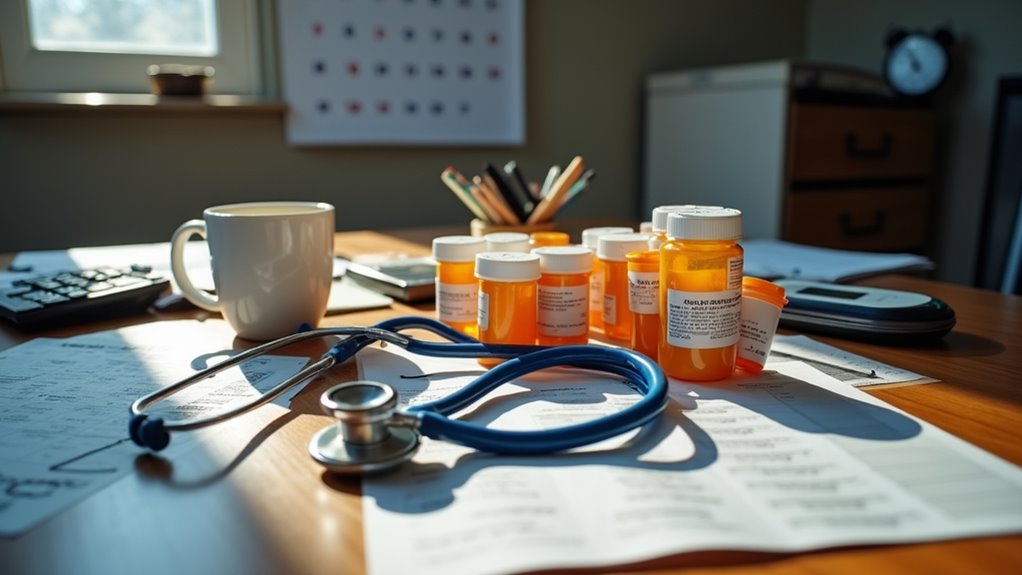While many diabetic patients focus solely on managing blood sugar levels, they often overlook a silent threat lurking in their eyes. Diabetic eye disease. It’s real, and it’s coming for your vision if you’re not careful. Approximately 40-45% of diabetic patients already show symptoms of diabetic retinopathy. Yeah, almost half.
The scary part? These vision changes can happen without warning. One day you’re fine, the next you’re seeing floaters dancing across your vision or noticing colors don’t pop like they used to. Blank spots in your visual field. Blurry center vision. These aren’t just annoyances—they’re red flags.
High blood pressure makes everything worse, of course. It’s like adding gasoline to a fire that’s already burning in your retinal blood vessels. These vessels leak, bleed, and sometimes grow abnormally when damaged. Not great for something you need to, you know, see. Type 2 diabetes responds better to treatment through lifestyle changes than other forms of diabetes.
The longer you’ve had diabetes, the higher your risk. Simple math. Uncontrolled blood glucose is practically sending an engraved invitation to vision problems. In fact, diabetic retinopathy is the leading cause of blindness in working-age adults. Your poor macula—the part responsible for sharp central vision—swells with fluid in diabetic macular edema, turning your world into a blurry mess.
Here’s the kicker: much of this damage happens before you notice anything’s wrong. By the time your vision changes, significant damage may have already occurred. Permanent vision loss. Not reversible. Gone.
The solution isn’t complicated, just inconvenient. Annual dilated eye exams. Regular blood sugar monitoring. Controlling your blood pressure. Exercise. Healthy diet. The usual suspects. Regular monitoring is crucial since diabetic retinopathy often presents no symptoms in early stages when treatment would be most effective.
Medications like anti-VEGF treatments and corticosteroids can help reduce swelling, but they’re treating problems that could have been prevented.
Don’t wait until you’re squinting at text messages or missing the exits on highways. Your eyes are telling you something important about your diabetes management. Listen to them before they stop working altogether. Early intervention is everything. Without it, you might be seeing a whole lot of nothing in your future.





